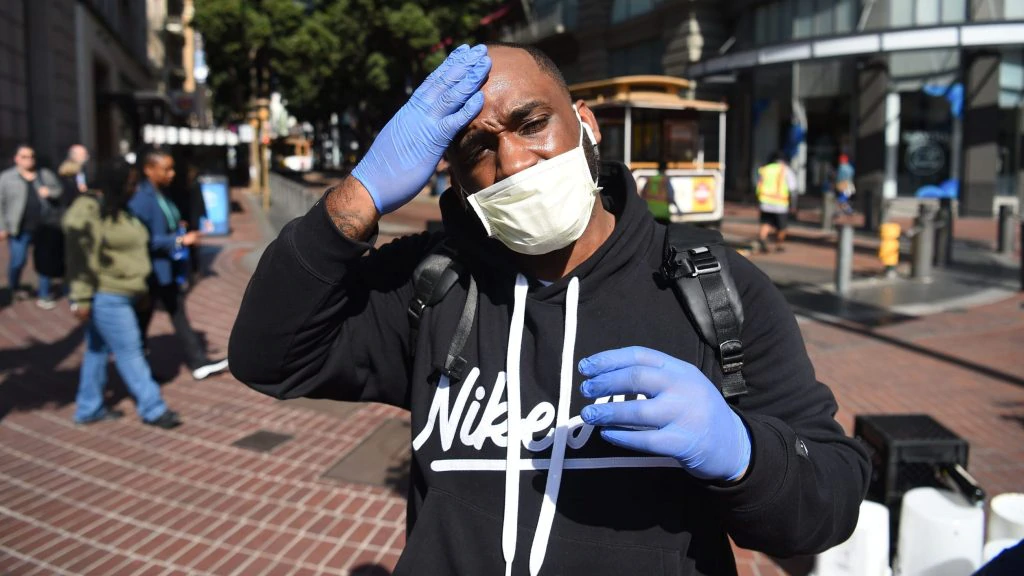[ad_1]
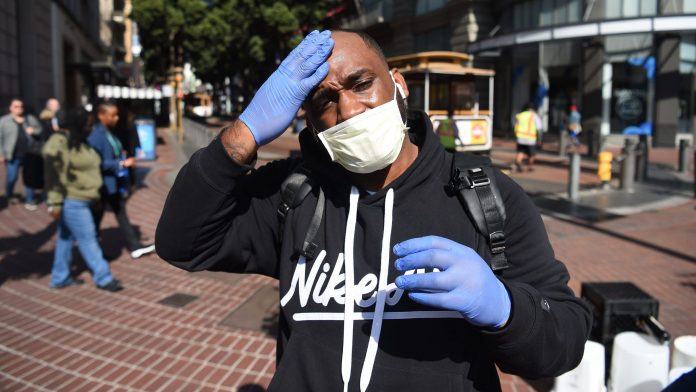
The last few weeks have started to feel like a scene from one of those dystopian Netflix movies where the world is on the brink of the apocalypse as crooked politicians do their best to tell us “everything is fine” while lining their pockets.
In fact, since the World Health Organization announced on March 11th that we were officially in the midst of a global pandemic because of coronavirus, its been surreal, and at times frustrating to see the mixed messages being presented by the Trump administration and various news outlets.
For a while, the media seemed to oscillate between dismissing this as just another strain of the flu OR freaking us out with verbiage that teetered on the line of fearmongering.
READ MORE: 50 + Black businesses to support during the coronavirus pandemic
Two weeks later, words like “self-distancing” and “quarantine” have suddenly become popular catchphrases and it’s hard not to notice that this pandemic hits all of us differently, particularly, along the lines of race and socioeconomic status.
So if you’re a Black person, grappling to make sense of how all this affects you and your community specifically, this list is for you. The hope isn’t to scare you but to instead inspire you with a clear outlook on what’s at stake and how to prepare your family for this unprecedented global reset.
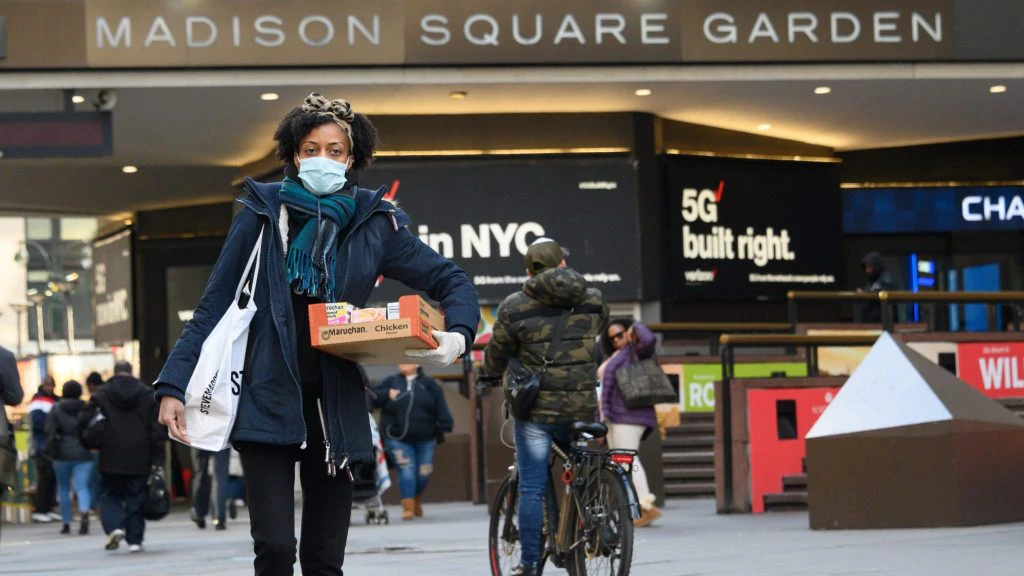
Unpacking what “at-risk” really means
For a while, we were told that only elderly people and those with compromised immune systems were “at-risk”. For the rest of us, catching this new strain of the coronavirus would allegedly be as mild and inconvenient as sleeping in with the flu.
However, what many fail to realize is that severak of the pre-existing conditions that make COVID-19 more dangerous are ailments that disproportionately affected the Black community like asthma, heart disease, and hypertension.
In fact, according to the AAFA, African-Americans in the U.S. are 20 percent more likely to have asthma and already die from it at a higher rate than people of other races or ethnicities as it is. Given how COVID-19 attacks the respiratory system, that means our community needs to be extra diligent.
Our immunity is as fictional as Wakanda
Africa was one of the last continents to be hit in a significant way by COVID-19. As a result, there began to circulate a rumor circulating that perhaps Black people across the diaspora, in general, had a heightened immunity.
As glorious as a virus immunity sounds right now, much like Wakanda, the story of how Black people couldn’t be brought down by ‘The Rona is just false.
In fact, the first person to die of the virus in the entirety of Illinois is was a retired Black nurse. And over the last week, several high profile Black people have come forward to reveal their positive test results and spread awareness.
Last week, Idris Elba posted a 2-part video update about his health status. The British actor plead with fans to stop spreading the myth that Black folks are immune to COVID-19.
— Idris Elba (@idriselba) March 17, 2020
READ MORE: Idris Elba slams conspiracy that COVID-19 doesn’t infect Black people
“Something that’s sort of scaring me when I read the comments and see some of the reactions is… My people, Black people, Black people: Please, please understand that coronavirus… you can get it, all right?” the concerned 47-year-old said in a video.
“There are so many stupid, ridiculous conspiracy theories about Black people not being able to get it. That’s dumb, stupid.”
Who even gets access to testing?
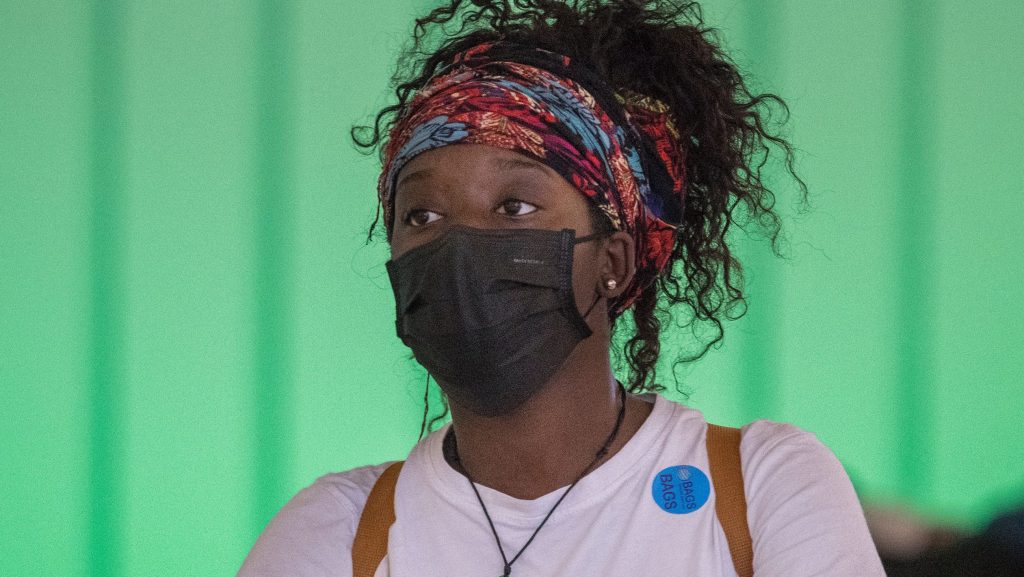
Even if we got every Black person to self-quarantine and take the coronavirus seriously, there’s still a matter of getting those who may have been exposed tested. And unfortunately, it’s starting to look like there are racial disparities in that respect as well.
This month a group of concerned physicians in Virginia demanded that the Centers for Disease Control and Prevention (CDC) and the World Health Organization (WHO) released data about what access Black communities have to coronavirus tests.
They did this because of the lack of data thoughtfully breaking down who’s been tested along the lines of race and ethnicity. It only provides even more opportunities for people of color to be left behind due to there being no checks and balances in place.
READ MORE: Coronavirus is a health and economic issue for Black people, doctor says
“Doctors fear African Americans may not receive access to #COVID19 testing stemming from deep-seated inequities disproportionately affecting community–lack of paid sick leave, adequate health insurance, income disparities & access to medical facilities.” https://t.co/dXK3G1aKE5
— NAACP (@NAACP) March 24, 2020
“We know in the US that there are great discrepancies in not only the diagnosis but the treatment that African Americans and other minorities are afforded,” explained Dr. Ebony Hilton, an associate professor of anesthesiology and critical care medicine at the University of Virginia.
“So I want to make sure that in this pandemic, that Black and Brown people are treated in the same way and that these tests are made available in the same pattern as for white people.”
Dr. Cameron Webb, who is running for Congress in Virginia also questions how these tests are being given, noting, “If you’re not an NBA player, it might be a little harder for Black people to get access to those tests.”
The myth of “just work remotely”
I am a staff writer for a digital news media publication and therefore my colleagues and I have been incredibly blessed to be able to work remotely while the country in on lockdown.
However, unfortunately for many hourly workers, freelancers, creatives and service providers this simply isn’t an option.
CBS News reports, “From 2017 to 2018, 29.9% of white workers surveyed said they could work from home, compared to 19.7% of black of African American workers and 16.2% of Latino workers. Thirty-seven percent of Asian workers said they could do their jobs remotely, according to the report and the Bureau of Labor Statistics.”
The data essentially confirms that a disproportionately high ratio of Black and Hispanic workers cannot telecommute, according to a report by the Economic Policy Institute based on federal labor Asian workers, followed by white workers, were most likely to be able to do their jobs remotely.
-only 20 percent of black people, and 16 percent of hispanics said they had the ability to work from home.
-52 percent of those people have a college education or higher
– only 4 percent of those have less than a high school diploma#COVIDー19 https://t.co/zHl4xqg14y
— tina binna (@tinatacobella) March 23, 2020
And STILL we rise
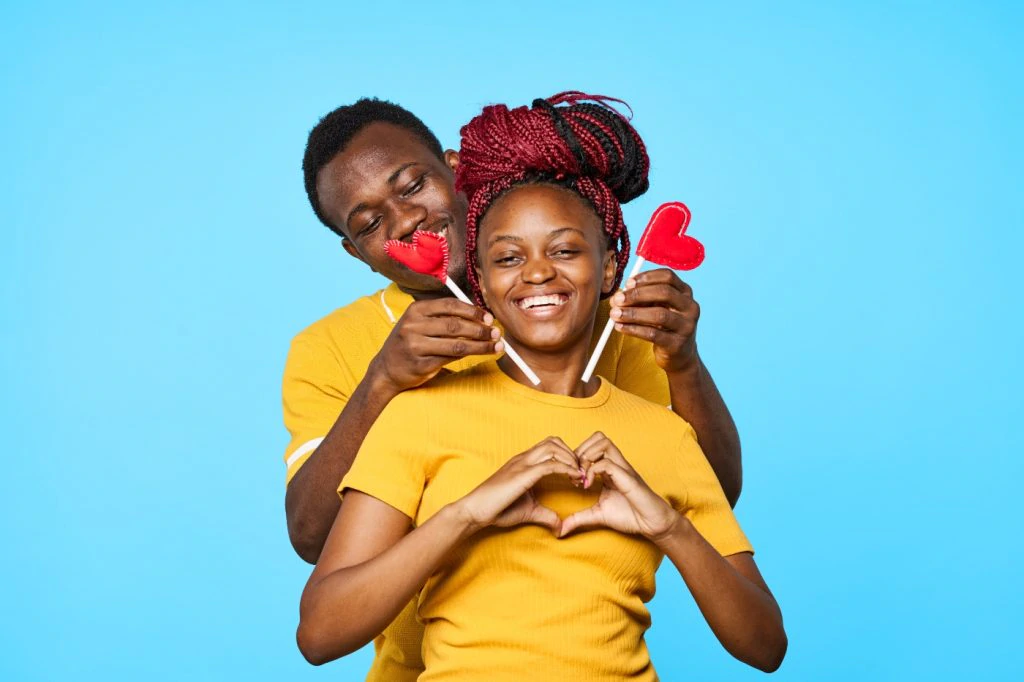
In the midst of all this doom and gloom, it’s easy to lose hope and fall into a deep depression, especially for those of us isolated in our homes alone. But let it be noted that Black Twitter never fails to display its cleverness during times of adversity.
Some of the memes and videos made since COVID-19 took over our news feeds have been comedic genius. A viral video of rapper Cardi B expressing her fear and frustration even got turned into a chart-topping Coronavirus Remix.
Let’s not forget the magic that is DJ D-Nice, who since Wednesday has been taking to Instagram to host daily virtual dance parties that he calls, “Home School” but that fans have affectionately dubbed it “Club Quarantine.”
With the party’s popularity taking off, D-Nice has had many special celebrity guests throughout the week, including Janet Jackson, John Legend, Common, and Dave Chappelle. But last Saturday, things got even more lit when Michelle Obama, Rihanna, Lena Waithe, Ava Duvernay, Jennifer Lopez, and Ellen Degeneres joined the fun. Oprah Winfrey, Gayle King and Democratic presidential candidates Joe Biden, and Bernie Sanders made an appearance as well.
READ MORE: Finding Black joy while self-quarantined during ‘The Rona’
Michelle Obama, Bernie Sanders, Janet Jackson, Rihanna, Joe Biden, Ellen and god damn even Oprah we’re all on This live DJ set by #dnice on IG and it was legit exhilarating.
Dude brought the world together through music and did so live for NINE HOURS. pic.twitter.com/AuM4MZ5sNq
— Aaron B Koontz (@AaronBKoontz) March 22, 2020
Janet Jackson is the Queen #DNice #ClubQuarantine pic.twitter.com/QZlH0yr5tw
— robert. (@FierceRobert) March 23, 2020
In Case You Missed it! Over 100K tuned in #ClubQuarantine on IG Live!
And, who joined in…Michelle Obama, Janet Jackson, Joe Biden, Jimmy Fallon, Stevie Wonder, Janet Jackson, Ellen, Kamala Harris, and more! Whew! We needed this!
Thank you @DJ_DNICE or on IG @DNICE pic.twitter.com/xLAcaK79Ne
— Lena Gould (@DrLenaG) March 22, 2020
[ad_2]
Source link

